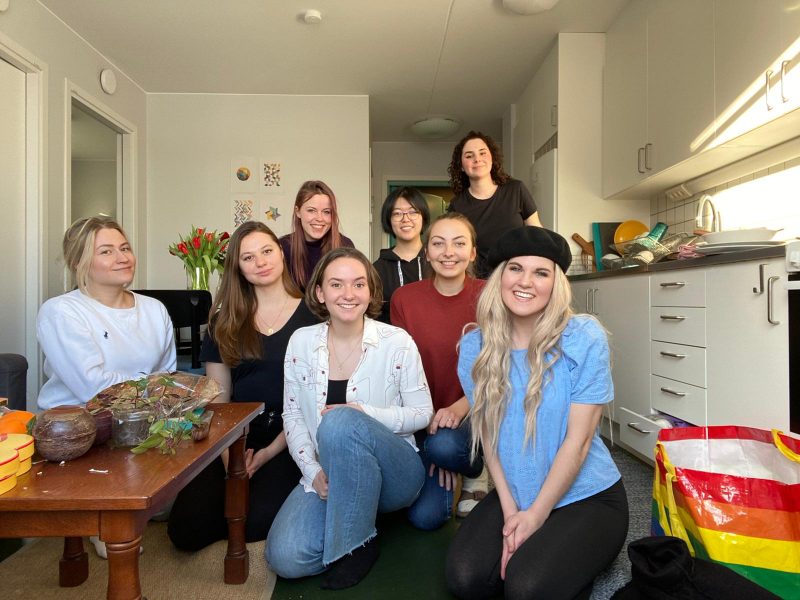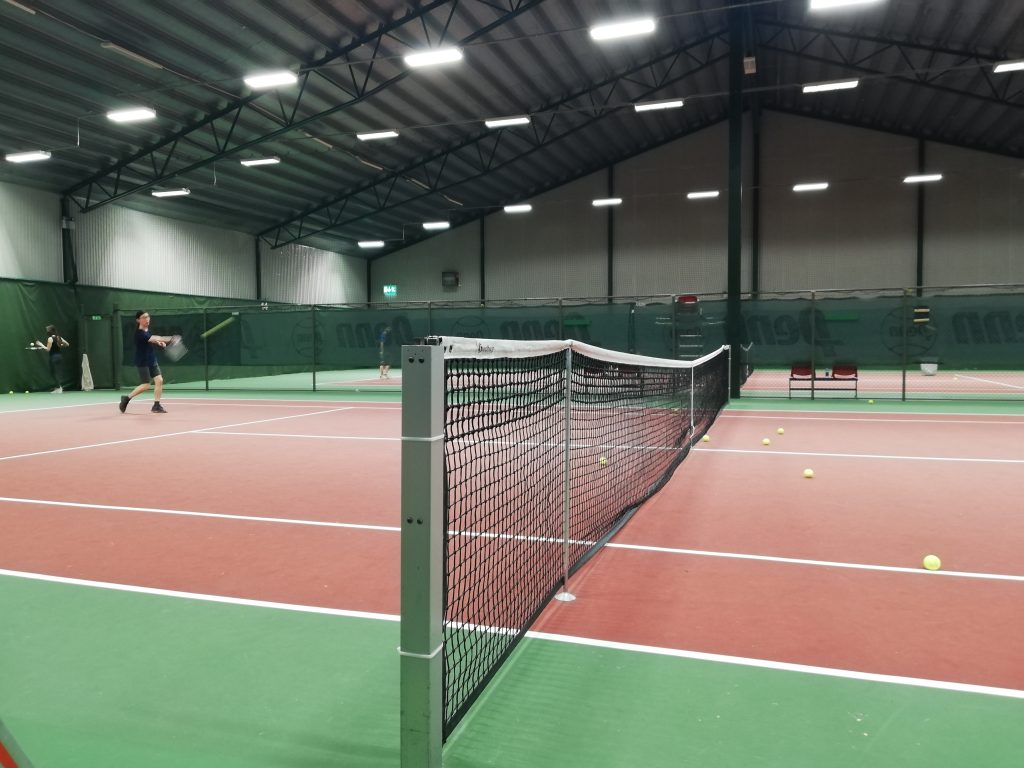
How to make friends in Sweden
Approximately a year ago, I was eagerly awaiting reply from Karolinska Institutet on the status of my application. The truth is that I wasn’t feeling very confident that even if I were to be accepted that I would have the guts to move to Sweden all on my own. The fact that I would have to leave my entire support system (i.e. family, friends) behind and start anew in a foreign country was very scary to me. I was used to moving around my whole life (story for another time) but this time felt different. I had grown hyper-aware of my introvert tendencies during my undergrad, making me feel incredibly self-conscious of how hard socializing had become for me.
Don’t get me wrong, I’ve always had many friends, and many GOOD friends while we are at it, but meeting people just felt more laborious as adulthood unfolded. That, and exarcebated by the constrictions of a global pandemic, did not reassure me in the least when it came to my ability to make friends and build a support network in a completely different country. Hence, my biggest fear when it came to doing my Master’s in Sweden was that I wouldn’t be able to make friends and I would be a total loner. Now, if hindsight has taught me anything is that I worry too much in anticipation of the great unknown, but of course, my fear was 87% irrational.
Over the course of the past seven months, I have made many friends and I have actively sought more connections than I thought I was capable of handling. I wanted to write this blog to appease any worries you may be feeling about how difficult it (notoriously) is to meet people in Sweden and make friends. Here is a quick how-to guide to meeting people and making connections while you study in Stockholm.
1) Attend the orientation events
One of the easiest ways to meet people is to attend the events leading up to the start of the school year in late August. At KTH, these events are mostly organized by the faculty chapters and by THS MAIN (for international students), and they are a very good introduction to Stockholm and Swedish student life in general. By attending events such as hiking trips and trivia nights, I was able to find lots of interesting people, some of whom became my friends. If you sign up for these orientation activities, you will also be placed in a “Buddy” group, where you will most likely meet people in your programme of study. This was the case for me and that’s where I met two of my first peers from MTLS. Funny enough, they have also become my two closest friends here in Stockholm <3!
At KI, you will have the introduction to MTLS and to the Science for Life Laboratory facilities. Additionally, you can join the student union at KI and have access to all its perks during your first semester of the Master’s programme.
2) Connect with your fellow classmates and student boards
Speaking of student unions, a great way to make friends and build your network in the process is to get involved in Student Affairs. You can become an advocate for student rights and take part in reporting feedback by running for positions in the student unions. You can also become one of the three representatives in MTLS’s steering committee, where you relay your peers’ feedback about courses and the overall morale of the student cohort. I’m currently serving as the student representative for Stockholm University and I am really enjoying learning more about the programme inner-workings and the collaborative approach of the Stockholm Trio universities.
Now, this may also be a bit obvious but you should take every opportunity to connect with your fellow classmates from the programme, in particular through group projects. Given that we are all currently apart and attending lectures on Zoom, it adds an extra level of difficulty when it comes to staying in touch with your peers. What I recommend is that you make the absolute most out of teamwork by engaging with your classmates and getting to know them a bit better that way, in order to strengthen those relationships. Furthermore, take the time to organize or participate in little events or trips your classmates are thinking of doing (like the hiking trips I have mentioned in my previous blog), so you show that you want to spend quality time with them outside of seeing their faces on a computer screen. Little everyday check-ins also make a big difference in maintaining friendships alive and well in the long run.
3) Join a sports team or a club

This one is close to my heart because I love getting involved and finding opportunities that bring people together. Back in September, I joined the KTH Racketklubb because I wanted to find other students to play tennis with at an affordable rate. By meeting up two or three times a week to play together, I made many friends that I hang out with frequently, even outside of our tennis sessions. Recently, I was elected the new president of the club, so I also get to act as a liaison between the club and members of THS union and KTH, thus growing my network by association.
Another group I’m part of is the “Project Wisdom” book club at KI. Project Wisdom is a lovely initiative whereby students choose a popular science book and gather (online) to discuss the main ideas and themes of the book. I enjoy reading in my free time so I have been part of this book club since October. Currently, I’m leading the group responsible for reading “The Blind Watchmaker” by Richard Dawkins. It’s a lot of fun to find people with the same hobbies as you and then grow your relationships from there!
4) Get involved in your local community
Back in Canada, I used to find tons of volunteer opportunities for university students like me that were looking to contribute to the community they were living in. It was through this sort of community work that I made a lot of friends that share my values and beliefs. Here, volunteer or non-profit organizations are more difficult to find but that doesn’t mean they do not exist. If you are religious, I suggest you get in touch with the nearest place of worship to your house and ask your spiritual leader(s) if they know how you can help in your community. For occasional pet-sitters or baby-sitters, there are also some opportunities to volunteer/get paid for your time, many of them being posted on student housing Facebook/WhatsApp groups, for example. The best part is that by getting involved in your local community, you will more likely find Swedish people that can become your friends and with whom you can comfortably practice your broken Swedish (it worked for me haha).
Here are some other places where you can find volunteer opportunities:
5) Connect with your co-workers
Be it as a blogger or as a research assistant in a lab, there is always room for transforming professional ties into mutually-supportive friendships. I have made some friends through my work as a digital ambassador here at KI, mostly by spending time together as collaborators and sounding boards for content ideas. Invite your co-worker for a fika break and ask them about their hobbies and interests. You will be amazed at how open someone you work with on the daily can be, and they might just surprise you with an unexpected life story!
I hope this helps you in your friendship quest! I know I’m very grateful to have found so many cool people here in Sweden and for constantly being invited to things that my introverted heart feels inclined to decline. Be bold and throw yourself out there! You never know the weirdos that will adopt you as their friend. Don’t forget that strangers are just friends you haven’t met yet!!!
Francisca Leonardo - Molecular Techniques and Life Sciences
Hej! My name is Francisca. I come from the faraway land of the supreme maple syrup, aka Canada. I’m the blogger for the Master’s Programme in Molecular Techniques in Life Science at Karolinska Institutet. I love to write about my experience as a student in my programme, a newcomer to Stockholm, and a rookie at life in general. In my free time, I enjoy playing tennis, making music, sketching the city’s landscapes, and reading about anything and everything that interests me.

0 comments